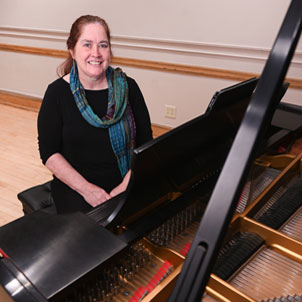Specialized training
Empirical Methods in Music Research, Ohio State University.

She is a huge advocate for the benefits of music in the home, the school room, the concert hall, and the therapeutic community. Music and the playing of musical instruments have incredibly positive affects on the neural network that can last a lifetime, even with only a small amount of exposure to playing or reading music as a child.
Empirical Methods in Music Research, Ohio State University.
Doctor of Musical Arts (DMA), University of Kansas.
Fellowship level training, Academy of Neurologic Music Therapy, Colorado State University.
Member level training, Academy of Neurologic Music Therapy, Colorado State University.
Master of Music, University of Tennessee at Chattanooga.
Bachelor of Music, Hartt School of Music, University of Hartford.
This list includes all pages that can be viewed within this website.
Martha Summa-Chadwick has achieved a national reputation as an educator, presenter, performer, and advocate for the cause of music in therapy. She has performed as piano and harpsichord soloist with orchestras across the country and served for twenty-six years on the faculty of the Cadek Conservatory of the University of Tennessee at Chattanooga, Tennessee. For the past decade, Dr. Summa-Chadwick has explored various ways to use music for therapeutic as well as aesthetic ends. She is the Executive Director of the nonprofit organization Music Therapy Gateway in Communications, Inc., and a frequent guest speaker at both national and regional conferences, discussing the use of biomedical music techniques for challenged children. She has given two TED talks and established a series of both chamber and solo concerts to help educate diverse audiences in an overview of biomedical music protocols and how music can be used in collaboration with improved neural learning patterns. She is also exploring how biomedical music protocols could be automated into software applications for persons with motor, speech, or cognition challenges.
"Music expresses that which cannot be put into words and that which cannot remain silent."
“Music can lift us out of depression or move us to tears - it is a remedy, a tonic, orange juice for the ear. But for many of my neurological patients, music is even more - it can provide access, even when no medication can, to movement, to speech, to life. For them, music is not a luxury, but a necessity.”
“Music may be the activity that prepared our pre-human ancestors for speech communication and for the very cognitive, representational flexibility necessary to become humans.”